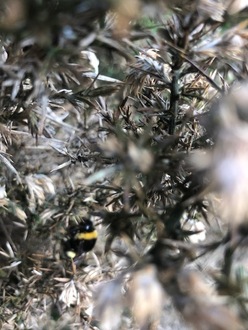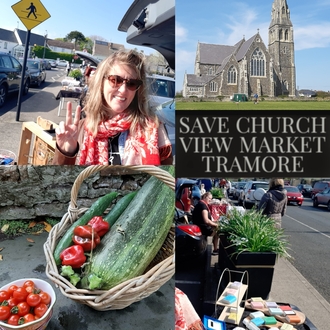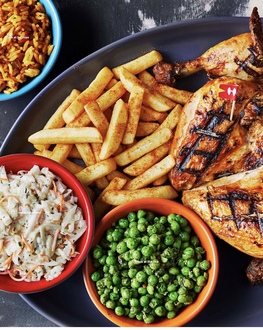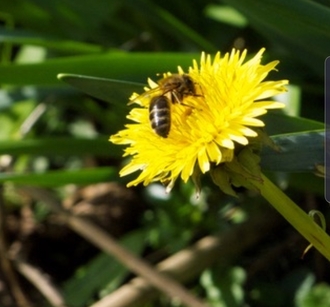- Featured
- Animal Rights
- Anti-racism
- Arts & Culture
- Children
- Climate
- Corporate accountability
- Crime
- Disability rights
- Economic
- Education
- Environment
- Food and Sustainable Production
- Gender Equality
- Governance and Transparency
- Health
- Housing
- LGBT Rights
- Mental health
- Northern Ireland
- Planning
- Privacy and Data Protection
- Rural Inequality
- Social Justice
- Trade
- Transport and Infrastructure
- Workers' Rights
- More
-
Ban the use of toxic weed killer GlyphosateGlyphosate the main ingredient in Roundup is poisonous to humans, wildlife and the environment. Studies recently found that this toxic weedkiller is in most people's bodies [1]. It is being sprayed on roadsides, paths, in housing estates close to where people live. Ireland has the second highest levels of glyphosate in surface water in the EU whilst other countries are banning it. In 2015 the World Health Organisation concluded that the pesticide was 'probably carcinogenic to humans' and again, [2] Despite this many local councils still use it and it is still being sold on shop shelves as Round Up. The EU re-approved the use of glyphosate in 2017 however, in the last few years it has been banned by countries including France, Germany, Sri Lanka, El Salvador, the Netherlands, Argentina, Columbia, Peru and Mexico. The EU licence renewal was due to happen this July 2022 but it's been pushed down the road again until July 2023. Big lobby’s already swooping in to convince politicians to vote to continue its use, ignoring the devastating effect it has on our biodiversity, water and our health.[3] Sign the petition to join the campaign so we can ban Glyphosate once and for all. Notes: [1] https://www.irishtimes.com/health/2022/07/09/disturbing-weedkiller-ingredient-tied-to-cancer-found-in-80-of-us-urine-samples/ [2] https://www.scientificamerican.com/article/widely-used-herbicide-linked-to-cancer/ [3] Page 83 http://onlinelibrary.wiley.com/doi/10.2903/j.efsa.2015.4302/epdf6,188 of 7,000 Signatures
-
Tell Us Where Our Clothes Come From Dunnes Stores!Fashion chains are responsible for ensuring their workers are paid living wages, work in a safe environment and receive sufficient rest periods between work. However, fast fashion chains like Primark and H&M are notorious for sourcing their clothes from factories that provide none of the above. Dunnes Stores has a similar fast fashion model, yet unlike many other large retailers, has no information on its website regarding where it's clothes come from and how their garment workers are treated. The Clean Clothes Campaign estimates that garment workers in India and Bangladesh are paid, on average, 2-5 times less than is needed to live with dignity. Poor working conditions also endanger the lives of workers. In the case of the 2013 collapse of the Dhaka garment factory in Rana Plaza, Bangladesh, over 1,000 people died due to shockingly poor implementation of building safety standards. Some of Dunnes' clothes are made in Bangladesh yet it was one of the few retailers who failed to sign the Fire and Safety Accord in 2013 to improve factory conditions in the country. The sustainability of fast fashion retailers is also coming under increased scrutiny as the climate crisis accelerates. The fashion industry produces 10% of the world's carbon emissions. Two key factors in this are clothes waste caused by excess production and use of unsustainable fabrics. Retailers like Dunnes must take responsibility for sustainably and ethically sourcing the clothes they sell. If not, we as consumers must hold them responsible for the sake of our future.203 of 300 SignaturesCreated by Niamh O'Connor

-
Save Church View Market TramoreThis is a growing Community Market which offers so much more than locally made goods and produce, it offers a meeting place for people in a safe outdoor setting. It is a great addition to the town of Tramore and is well supported by residents. The Council need to be realistic in the number of stalls needed here AND listen to the voices of the community,both market stall owners and those in the town who support the market.1,135 of 2,000 SignaturesCreated by Kate Blackvelvet
-
Create halal options in Nandos IrelandThis is important because there are at least 100,000 Muslims in Ireland , a forever growing population. Nandos UK have 434 Nandos outlets and 76 of them are Halal . Nandos have at least 9 restaurants in Dublin alone , yet none of them are halal or provide halal options. We need at least one Nandos with halal options in this country . Ireland claims to be an inclusive and diverse country , yet were one of the only dietary groups in the country that are not catered to in mainstream restaurant and fastfood chains. This is 2021 . We need these options. We need this change in Ireland. We would like Nandos Ireland to set the standard because everyone deserves a cheeky Nandos.1,307 of 2,000 SignaturesCreated by Baisat Alawiye
-
Ag fas le cheile! Say yes to a 100 % Organic, Chemical-free and GMO-free IrelandDear Friends, I just created the petition: Ag fas le cheile! Say yes to a 100% Organic, 100% Chemical-free and 100% GMO-free Ireland. It would mean a lot to me if you took a moment to add your name because: A journey’s end matters not, for it is the journey itself that inspires, enriches and delights. As I took “the road less travelled” 18 months ago, I could not have imagined the amount of learning to be had on this road; for I am now less dependent on certain modern conveniences than I was in May 2019. Now in November 2020, I am • 100% shampoo-free • 100% clothes detergent-free • 100% washing-up liquid free • 100% dishwasher liquid free • 100% all-purpose cleaner free • 99% bin-free. In short, grey water that leaves my house is virtually chemical free with a minimal toxic load to the environment. My garden is 100% Organic, 100% Chemical-free and 100% GMO-free and has been for about 10 years. With the continued support from local Clare businesses and shops, Clare media and a waste prevention grant from Clare County Council, Operation de-Plastification with its “slim your bin or bin your bin challenge” has been able to inform, encourage, support and lead-by-example on the quest to waste reduction, particularly plastic related waste in the shape of single-use plastic bottles and plastic packaging. With the submission to Clare County Council for the Clare Local Development Plan 2022 – 2028 "100% Organic, 100% Chemical-free and 100% GMO-free", I am hoping to sow the seed for a different Clare, and by extension a different Ireland, to highlight a path that has been taken by other countries successfully and to encourage as many people of all ages and guises, including businesses and politicians, to re-think their habits and attitudes in relation to • everyday conveniences • everyday routines • everyday practices to aid the recovery of our planet, with an intact environment which in turn will support our future. The attempt to combine the Operation de-Plastification campaign and the vision for a post-pandemic County Clare, has generated the “ag fás le chéile” petition, where shoppers, sellers and consumers can voice, with their signature, their request for an enduring “green” Ireland. The petition aims to address all people living in Ireland: • Shoppers: we want to buy local, sustainable, affordable, nutritious, delicious, organic, plastic-packaging-free, chemical-free and gmo-free goods • Sellers: we want to sell local, sustainable, affordable, nutritious, delicious, organic, plastic-packaging-free, chemical-free and gmo-free goods • Consumers: we want to enjoy local, sustainable, affordable, nutritious, delicious, organic, plastic-packaging-free, chemical-free and gmo-free goods Assuring our environment’s and our survival, “the road not taken” may lead to a life and life-style where less is more, as less is more than enough in my experience. With the kindest regards, Cornelia Wahli Operation de-Plastification Campaign Slim your Bin or Bin your Bin Challenge “Ag fás le chéile” Petition ____________________________________________________________________ https://my.uplift.ie/petitions/ag-fas-le-cheile-say-yes-to-a-100-organic-chemical-free-and-gmo-free-ireland Real change happens when everyday people like you and I come together and stand up for what we believe in. Together we can reach lots of people and help create change around this important issue. After you've signed the petition, could you also take a moment to share it with others? It's really easy – all you need to do is forward this email. Thank you!75 of 100 SignaturesCreated by cornelia wahli
-
Stop Unsustainable Fishing in Irish Inshore WatersIn 2018 the Irish government implemented a ban on trawlers greater than 18m to fish within 6 nautical miles of the Irish coast. The High Court has since overturned this ban with the current law now allowing boats of any size to fish anywhere with no regulations or quotas enforced. Not only is this detrimental to inshore ecosystems, smaller Irish fishing communities cannot compete with large unregulated trawlers coming inshore. Bantry Bay in West Cork is one particular area that is currently at the detriment of unsustainable fishing practices. Although Bantry Bay is a designated Special Area of Conservation (SAC), drone footage of pair trawling was captured here in October 2020. This area is home to marine invertebrates, fishes, elasmobranchs, seabirds and marine mammals. While pair trawlers are fishing legally, with no regulations or quotas, they are fishing at an unsustainable rate and removing a critical food source (sprat and herring) for many larger marine species. Additionally, 80% of Irish fishing vessels are less than 12m and cannot compete with large trawlers. We need the Irish government to support small Irish fishing communities and protect our marine environment and its inhabitants. The Minister of Agriculture, Food and Marine , Charlie McConalogue has recently lodged an appeal against the High Court’s decision to allow large trawlers to fish within 6 nautical miles of the Irish coast. We call on the High Court to reinstate this ban on trawlers greater than 18m to fish within 6 nautical miles of the Irish coast.204 of 300 SignaturesCreated by ORCA Ireland Ocean Research & Conservation Association

-
RE-OPEN COCO MARKETSGovernment guidelines regarding Covid Level 5 and Essential Retail Outlets clearly state "markets that, wholly or principally, offer food for sale" can open for business. However, Dun Laoghaire Rathdown County Council has announced the closure of Dun Laoghaire People's Market and Marlay Park Market. This action will deprive traders of much needed income in what is traditionally their busiest time of the year. Furthermore, it will deprive consumers who look to these markets as their location of choice for the weekly purchase of organic & artisan produce.1,037 of 2,000 SignaturesCreated by MAST Limited
-
Stop Development on Gallwey's Hill TramoreThe former owner of this site should be commemorated as someone who triumphed over adversity, by dedicating this iconic viewing spot in Tramore to those who struggle due to exclusion. An accessible community garden with coffee shop would offer all in the town and beyond, a space and workplace for inclusion along with environmental appreciation.910 of 1,000 SignaturesCreated by Una Dunphy
-
Allow off-grid, low impact housing in IrelandIn Ireland our individual ecological footprint is approximately 5.2 Global Hectares per Capita (ghc) but the Planet’s actual capacity is only 1.8 ghc: we are living as if there are almost three Planet Earths. This way of life is not only contributing to mass extinction, pandemics and extreme economic inequalities, it means that, in all likelihood, our country will be uninhabitable for our grandchildren. A One Planet Development scheme would give people the option of moving out of the city and into the countryside to pioneer a way of life that goes some way towards bringing the human-nature relationship back into balance. It would allow people to build small low-impact dwellings, to establish community and to work with the land in a regenerative way to bring systemic change to our food systems.4,510 of 5,000 SignaturesCreated by Róisín Dexter
-
Stephen Donnolly: Demand meat factory owners protect people from COVID-19The people who produce our food are often treated the worst in society. Now, they're being exposed to COVID-19 at work, and bosses are allowed to get away with it. It's time Minister for Health Stephen Donnolly took action to make meat factory bosses protect the people who work there.46 of 100 SignaturesCreated by Emily Duffy

-
Say No to Mow in Co. KildareDuring this pandemic, many of our green areas have been allowed to grow wild, with no council mowing ongoing. Green areas have been allowed to flourish, so that we have yellows, purples, blues, whites, as well as lush green grass. When council workers are allowed to return, we want to keep wild the areas that don't require mowing (e.g. grass verges, fields in which only the edges are walked).105 of 200 SignaturesCreated by Sorcha Grisewood
-
Biodiversity Crisis in IrelandThis is of critical importance right now due to the declining number of insect species in this country as a result of poor practices by many people who simply are unaware of the adverse effects of their behaviour. Healthy biodiversity boosts ecosystem productivity where each species, no matter how small, all have an important role to play. In Ireland biodiversity is essential for many reasons including the below: • Soils formation and protection • Nutrient storage and recycling • Pollution breakdown and absorption • Contribution to climate stability • Maintenance of ecosystems • Food • Medicinal resources • Wood products • Ornamental plants • Diversity in genes and species • Social benefits, such as research, education, recreation, cultural values and tourism1,432 of 2,000 SignaturesCreated by Suzanne Murphy

.jpg)










